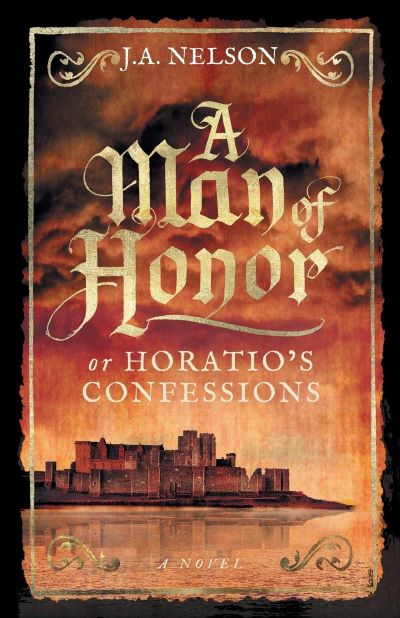
review copy provided by Harper Perennial
Description from Goodreads:
A mysterious jewel holds the key to a life-changing secret, in this breathtaking tale of love and art, betrayal and redemption.
When she decides to auction her remarkable jewelry collection, Nina Revskaya, once a great star of the Bolshoi Ballet, believes she has finally drawn a curtain on her past. Instead, the former ballerina finds herself overwhelmed by memories of her homeland and of the events, both glorious and heartbreaking, that changed the course of her life half a century ago.
It was in Russia that she discovered the magic of the theater; that she fell in love with the poet Viktor Elsin; that she and her dearest companions—Gersh, a brilliant composer, and the exquisite Vera, Nina’s closest friend—became victims of Stalinist aggression. And it was in Russia that a terrible discovery incited a deadly act of betrayal—and an ingenious escape that led Nina to the West and eventually to Boston.
Nina has kept her secrets for half a lifetime. But two people will not let the past rest: Drew Brooks, an inquisitive young associate at a Boston auction house, and Grigori Solodin, a professor of Russian who believes that a unique set of jewels may hold the key to his own ambiguous past. Together these unlikely partners begin to unravel a mystery surrounding a love letter, a poem, and a necklace of unknown provenance, setting in motion a series of revelations that will have life-altering consequences for them all.
Interweaving past and present, Moscow and New England, the backstage tumult of the dance world and the transformative power of art, Daphne Kalotay’s luminous first novel—a literary page-turner of the highest order—captures the uncertainty and terror of individuals powerless to withstand the forces of history, while affirming that even in times of great strife, the human spirit reaches for beauty and grace, forgiveness and transcendence.
My take:
This book was a complete pleasure to read. It is a wonderful mixture of ballet, literature and history. I have long been fascinated with Russia and both my daughters take ballet lessons as a professional ballet company school, so we spend the greatest part of our time in the studio, at rehearsals and at performances. The chance to read a book about Russian ballet was just too good to turn down.
The story line is subtle and very complex, so I would rather not try to explain it too much. I think readers would rather have it unfold for them as the story progresses. Instead, I will give some examples of what I loved about the book.
I both loved and hated the way the story slowly unfolds while switching between Soviet Russia of the 1950's and present day America. I enjoyed the back and forth, but at times is was frustrating because I so wanted to find out what happened next.
The descriptions of the ballet studio and the dedication that was required of the dancers was wonderful to read. I learned some new terminology: "No down, no feathers." is a Russian ballet saying before a performance that came from an old hunters saying -- basically it equates to break a leg (roughly) and the response in Russian would be "Go to hell." I am used to "Merde" being the usual saying before a performance.
It was quite evident that Nina had something very painful in her past that she wanted to escape from and forget about. The specifics were not revealed until very late in the book and I was constantly guessing and changing my mind about exactly what it was throughout the story. Even during the difficult, painful times of her life, dance was always a release and comfort to her.
Even during the war, when each day brought news of devastation, and hunger sat like a sharp stone inside her, Nina's anemic body always awoke to dance, always found some reserve of strength that she hadn't know she possessed. . . . The physical sensation of dancing - despite the constantly sore feet and bruised legs and sweaty tights stained yellow from rosin - has always managed to erase other hardships. (p. 274)The wonderful descriptions of Nina and the other dancers and their rehearsals, the details about dress, toe shoes, competition between dancers, the joy of dancing, the pain of injury and the strange and unique position of ballet and the arts in Soviet Russia was a joy to read.
The other element that I particularly enjoyed was Grigori's story line and the beautiful descriptions of academic life and study. In some places the ideas discussed reminded me of Stoner by John Williams which I also loved. This idea in Russian Winter is an example.
After all, universities themselves were museums of a sort, places where people like Zoltan, and others who did not quite fit in, could comfortably ensconce themselves for decades - entire lives, even - worrying away at whatever esoteric subject they chose, until their hair had receded and the last of their youth disappeared. (p. 303)I think my favorite scene with Grigori is where he is reading a particularly well-written journal that holds some of the answers he is looking for and he can't be pulled away from his reading for anything as mundane as a meeting. He just had to keep reading. I think all avid readers can relate to this feeling and the strong pull of a well-written story. This book is a shining example of just such a story. Whether you are interested in Russian history, ballet, jewelry, literature or just like to read, this book is a wonderful choice.



This books sounds wonderful. Thanks for your review.
ReplyDelete